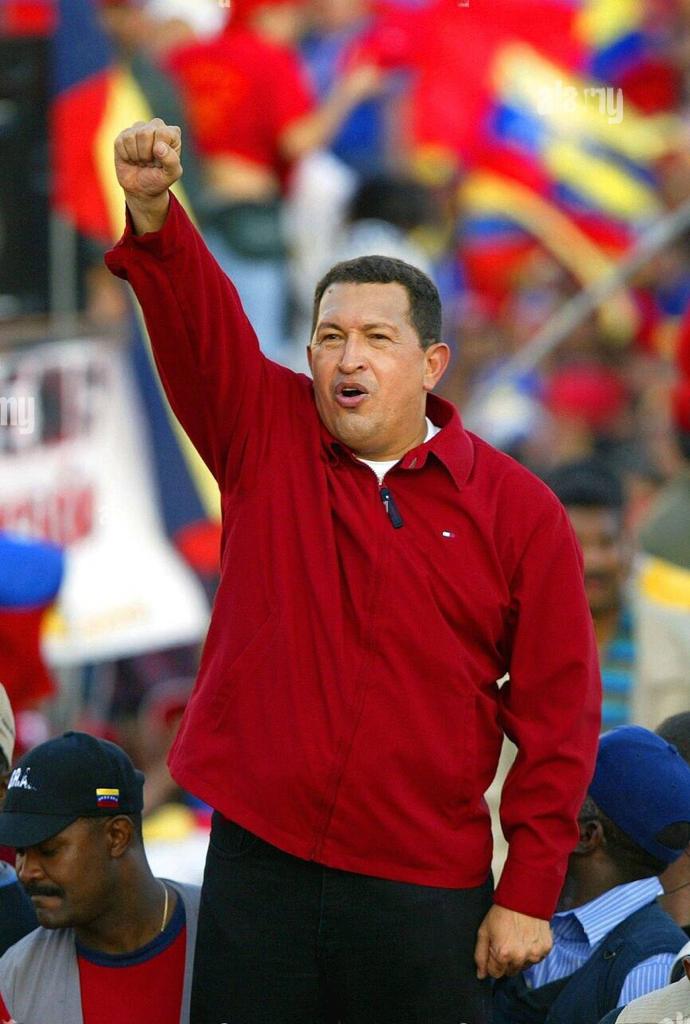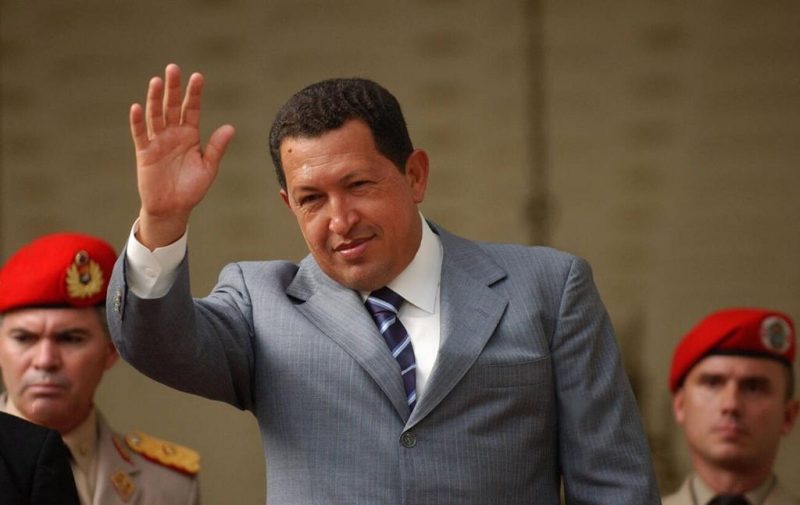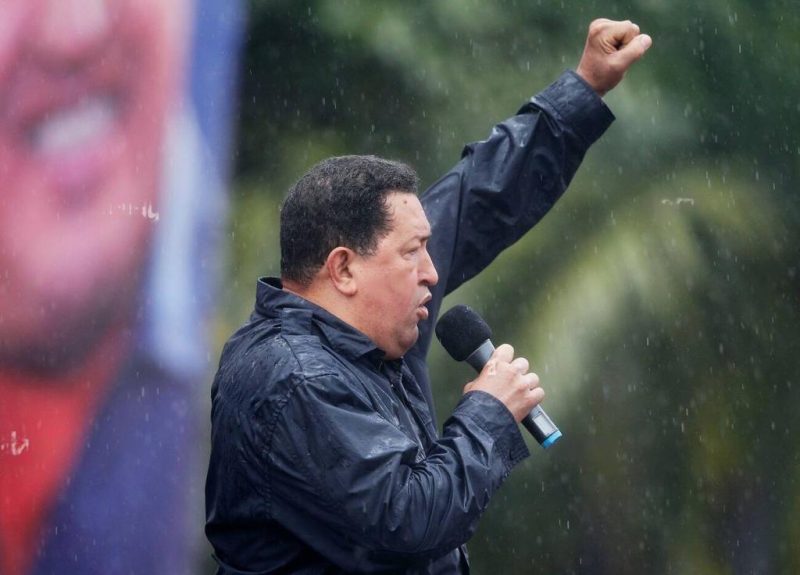By Jose Gregorio Bracho Reyes
Ambassador of the Bolivarian Republic of Venezuela in Türkiye
Ten years after the physical disappearance of Hugo Chávez Frías, it is worth analyzing the impact of his political actions in order to become fully aware that the Commander is by no means absent from Latin American geopolitics and by extension, of global scenarios, to the extent that Our America has a specific weight in the world scene.
Two hundred years after the independence of Our America, there has not been a leader who has done and achieved more for the true integration of Latin America and the Caribbean than that leader born in a small town in Venezuela, called Sabaneta de Barinas, in the year 1954.
Recovering the dreams of also Venezuelans like Francisco de Miranda, El Precursor, and Simón Bolívar the Liberator, President Chávez knew how to rethink, update and bring to fruition mechanisms for the integration of Latin America and the Caribbean, because he made us understand clearly, without ambiguity, that unity should not be seen as just one option, but as the condition for the construction of a present and a future of social justice and progress, which would lead us on the path of improvement, once and forever, from the stigma of continuing to be the most unequal continent on the planet.

If Bolívar died surrounded by the feeling of frustration that led him to formulate, one sad day, on the verge of death, that bitter phrase “I have plowed in the sea”, Chávez took over in the race started by the Liberator and achieved carrying such important projects as CELAC, PETROCARIBE, TELESUR, UNASUR, BANCO DEL SUR or ALBA to a successful conclusion. All these mechanisms established the development of ours, within a framework of social justice, always on the basis of cooperation, solidarity and complementarity as a possible goal.
Chávez taught us to see, beyond the “competitive advantages” and the “comparative advantages”, the cooperative advantages. With his vision of a great statesman, he knew how to convene all the rulers of the region, to go beyond the existing ideological differences, in search of a minimum consensus that will lead us to leave behind, in the past, the fragmentation of the one that dragged us down the petty interests of regional warlords, following the achievement of independence and which only favored the advance of the neo-colonial, imperialist, perverse and expansionist ideology of “Manifest Destiny”, designed in northern lands.
Understanding that the so necessary integration path needed not only the support of governments but also that of the people, the subalternized “groups”, the exploited, the invisible, the ignored, the eternally discriminated, so that they could “sing their truths” and present their alternative creative proposals, he proposed to create and created a television medium from which to confront the large media corporations. Always at the service of the interests of big capital, TeleSur was thus born in 2005, a multimedia platform whose mission was, and still is, to open the doors to those who, having a voice, never have access to the media.

That same year, 2005, PetroCaribe was born, an alliance that allowed a significant amount of oil to arrive daily, and under very advantageous conditions, to the countries of the Caribbean, with the understanding that without energy there is no access to development and much less for true independence.
Three years later, in 2008, UNASUR was born, based in Quito (Ecuador), whose main function is the cultural, social, political and economic integration of all the nations of South America.
And in 2010, the Community of Latin American and Caribbean States (CELAC) would be born in Mexico, of which 33 sovereign countries of the region form part, except the United States and Canada, as an initiative of Chávez, supported by leaders like Lula and Cristina Kirchner, and which, since it started work in Caracas in 2011, has become the only interlocutor for the promotion and projection of Latin America and the Caribbean in the discussion of major global issues.
But two years after the physical departure of the Commander, starting in 2015, retrograde governments in Latin America emerged from the darkness, demonstrating their iron will to erase the legacy of President Chávez. Macri-2015, from Argentina; Temer-2016 and Bolsonaro-2019, from Brazil; Kuczynski-2016, from Peru; Lenin Moreno-2017, from Ecuador; Piñera-2018, from Chile; Duque-2018, from Colombia; Cartes-2013 and Benitez-2018, from Paraguay; they all launched their anti-diplomatic artillery and executed a plan to attack and blow up the institutions and organizations created for the construction and consolidation of the Unity of Our America, in addition to trying, by all possible means, to expel Venezuela from Organizations such as MERCOSUR, for which they have the support and advice of the Pentagon (USA).
In 2016, the Macri government removed the TeleSur signal from Argentina.
In 2018, the governments of Argentina (Macri), Brazil (Temer), Chile (Piñera), Colombia (Duque), Paraguay (Cartes) and Peru (Kuczynski), denounced and withdrew from UNASUR, an organization that was created in 2011, under the determined impulse of President Chávez, with the objective of strengthening the political dialogue between the member states and fostering social development and cooperation among the nations of South America.
In 2019, Ecuador also left UNASUR and demanded the return of the headquarters building of the regional integration entity, located on the outskirts of Quito.
Giving continuity to the diplomatic war against Venezuela and the legitimate government of President Nicolás Maduro, they created the Lima Group, in 2017. The objective remains the same: To erase any evidence of the legacy of Hugo Chávez from the Latin American map.
Nicolás Maduro has known how to captain the ship, whose helm was entrusted to him by Commander Chávez, with the task of bringing to fruition a process of profound social transformation for our country, and he has had to navigate deep seas, enduring the worst and most stormy conditions, caused by a multimodal war designed in laboratories at the service of imperialism. The Revolution is still standing, upright, advancing, always forward and nothing will stop us.

The resounding failure of the Latin American and global right is evident. They could not, nor will they be able to obscure the light of Chávez’s legacy in our Continent, because nobody promoted like him the integration of our peoples, and there is no leader who has worked more to open spaces for the participation of historically marginalized social groups in Latin America.

















Leave a Reply